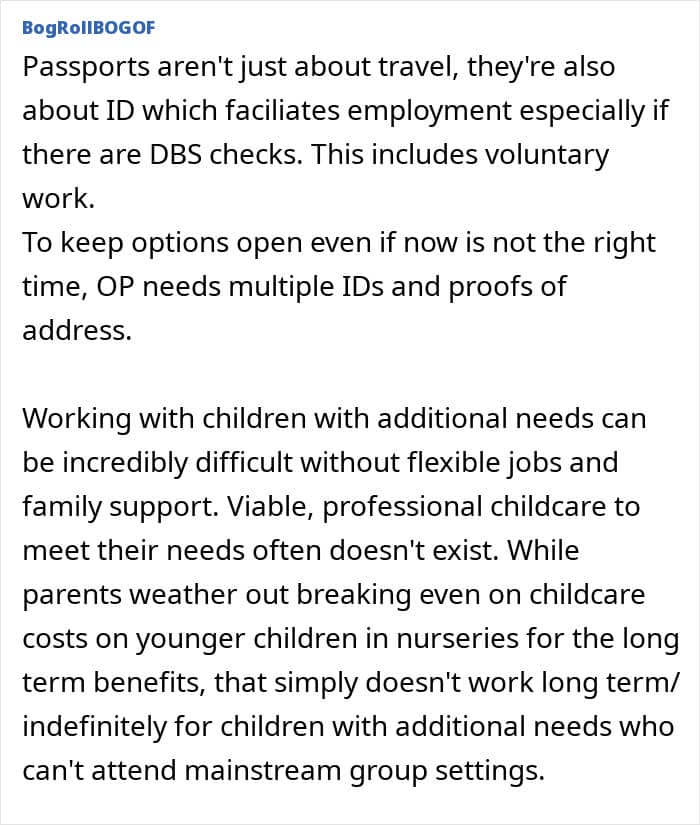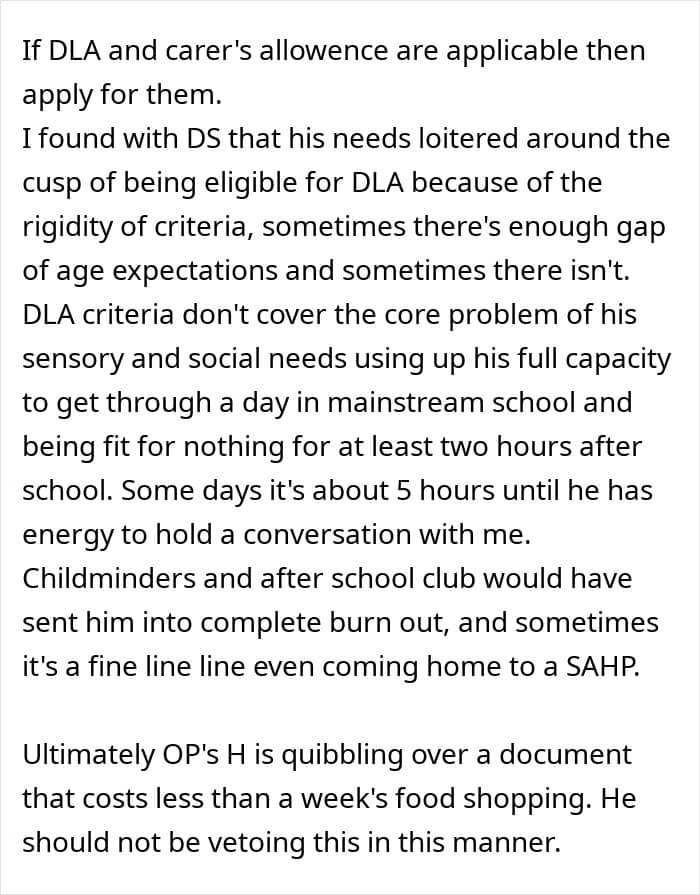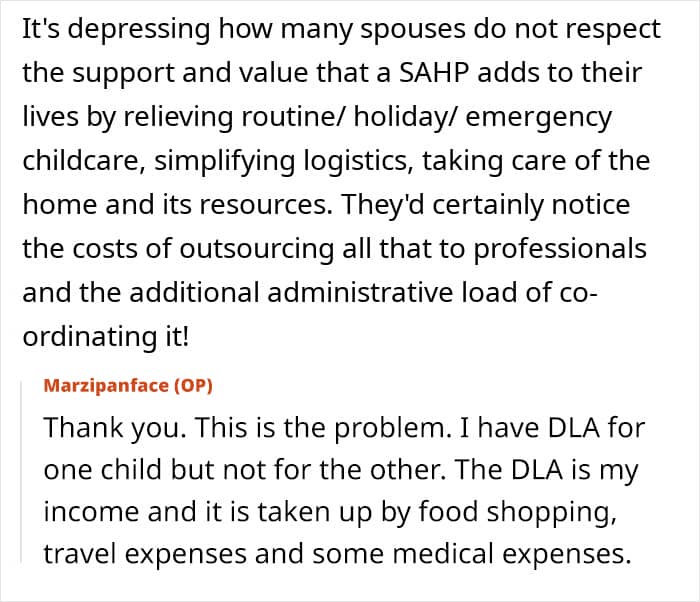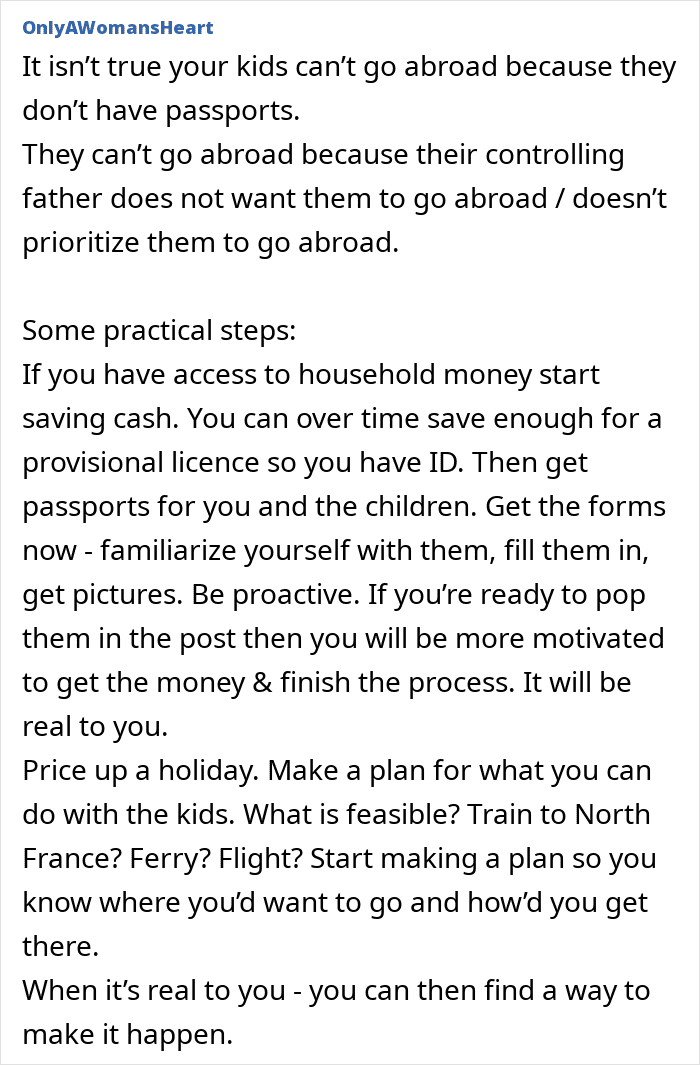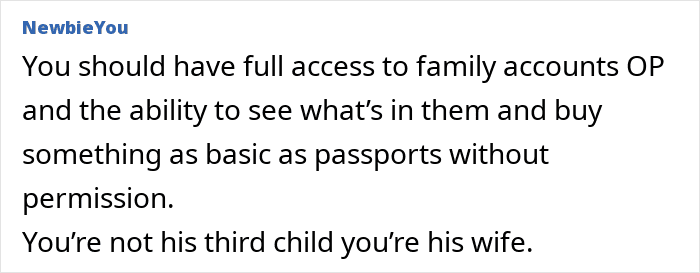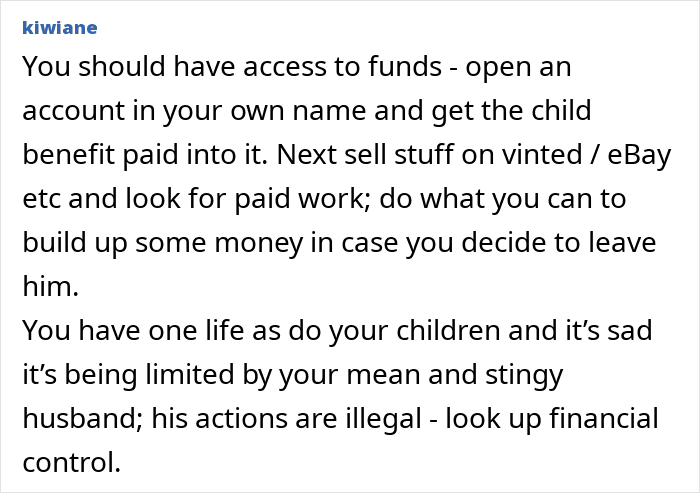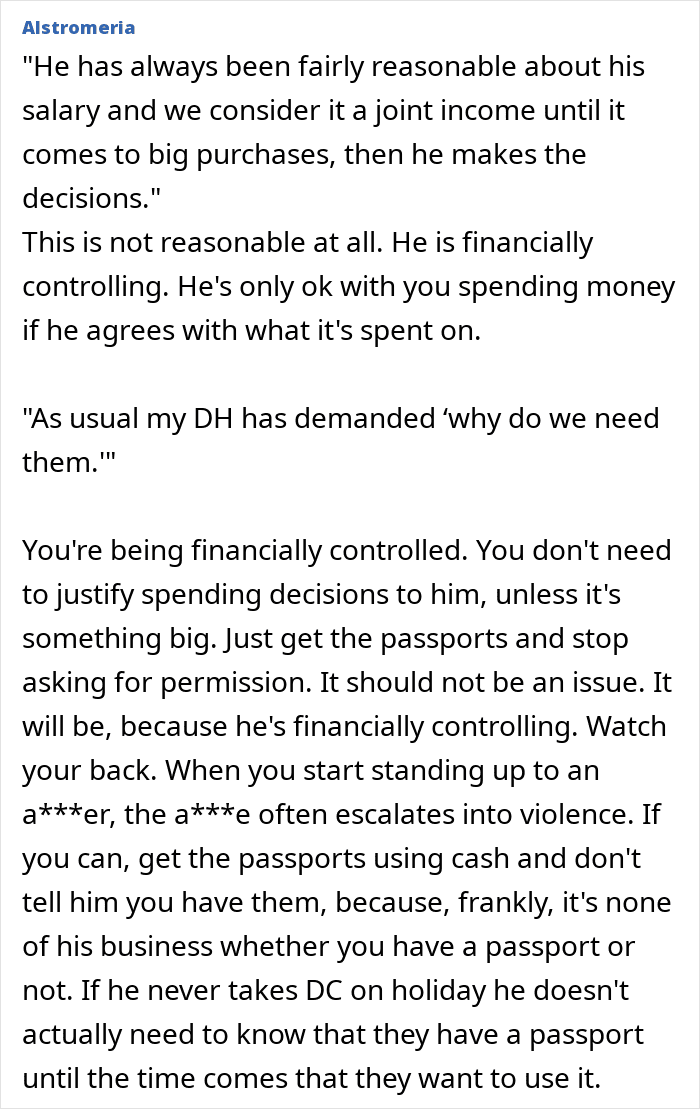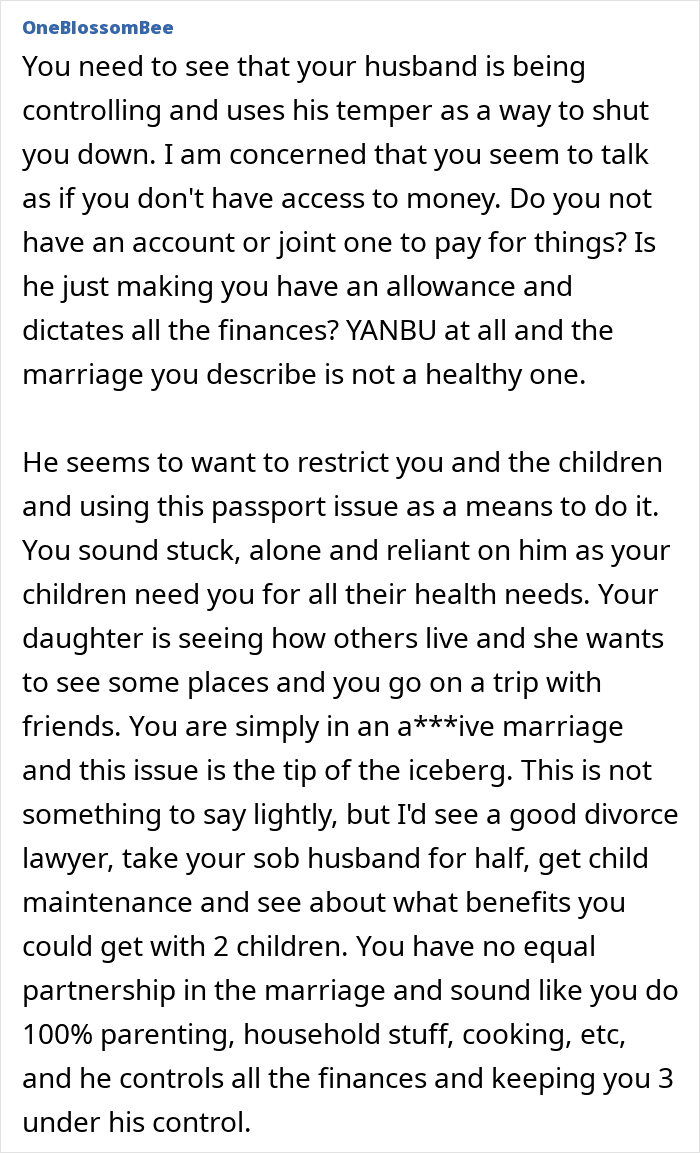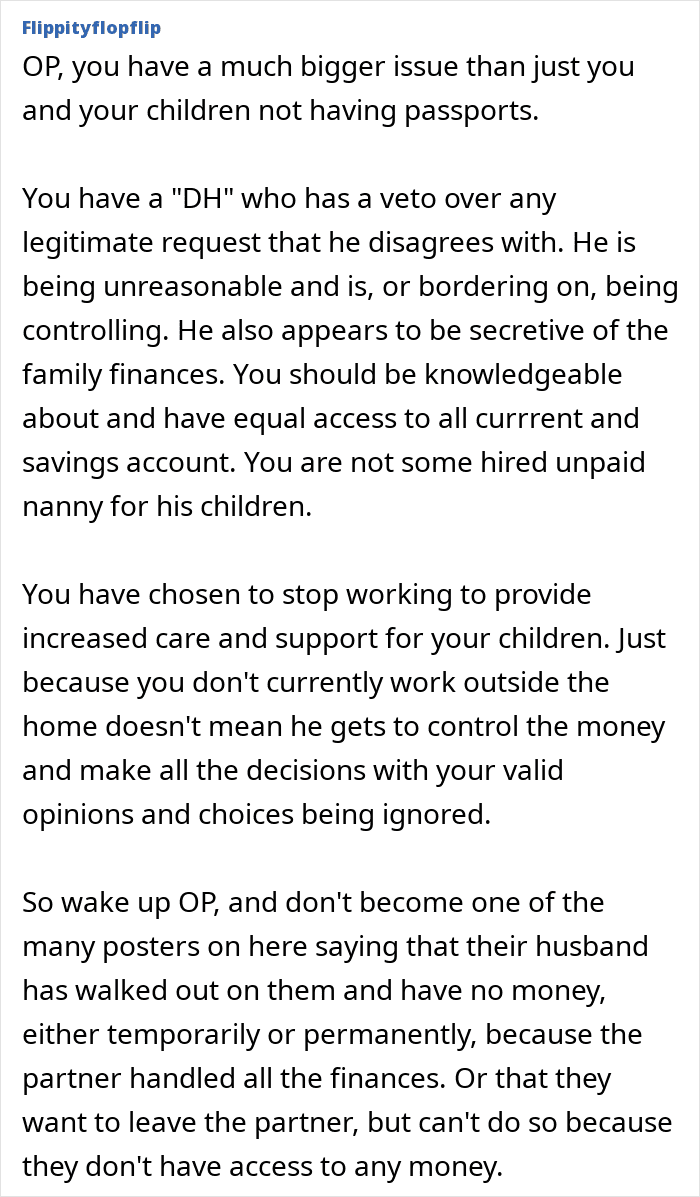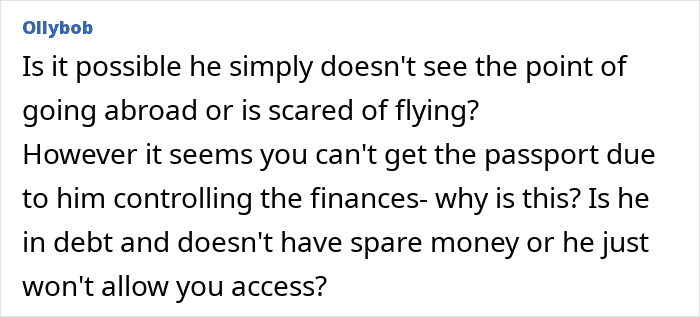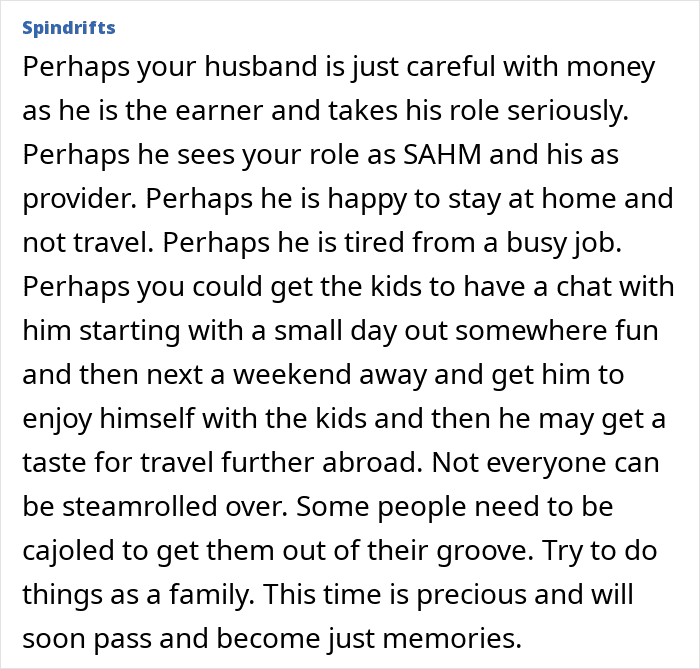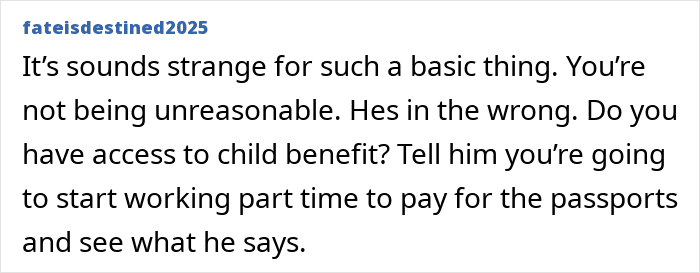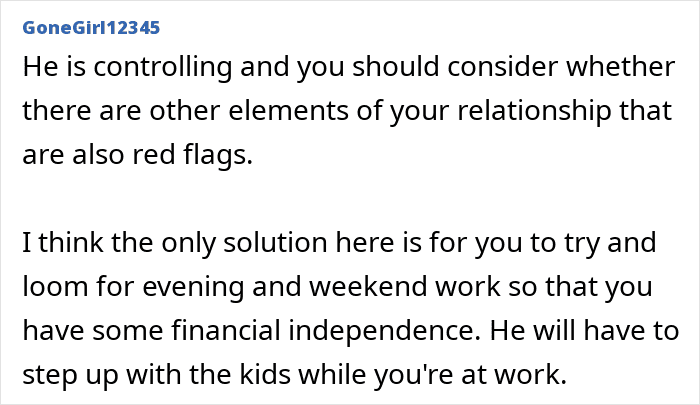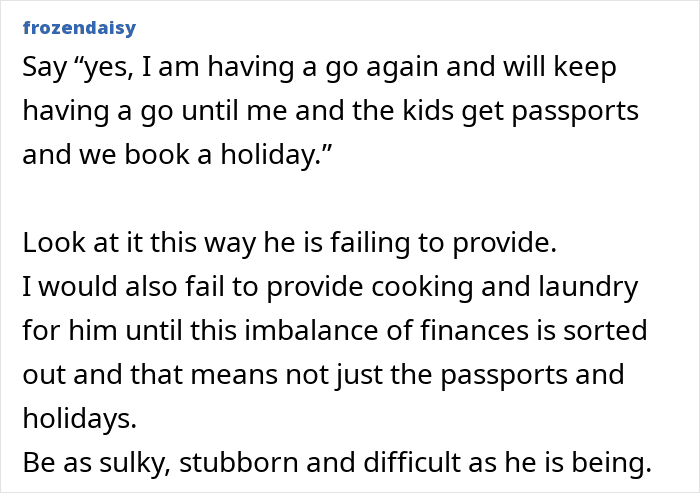There are many factors that dictate how a family manages its finances. One might have multiple incomes and be saving for a house, while another could be struggling with employment and focusing on paying off debt. The key is that everyone understand the situation and act in the household’s best interest. Or at the very least, they don’t sabotage each other.
However, as a recent story from the parenting forum Mumsnet shows, that’s not always the case. Last week, a user who goes by Marzipanface shared an emotional post, explaining why her husband’s actions around money have started to feel controlling and borderline manipulative. She asked people if they agreed or if they thought she was just being unreasonable.
RELATED:
Family holidays allow people to relax and create lasting memories with their loved ones
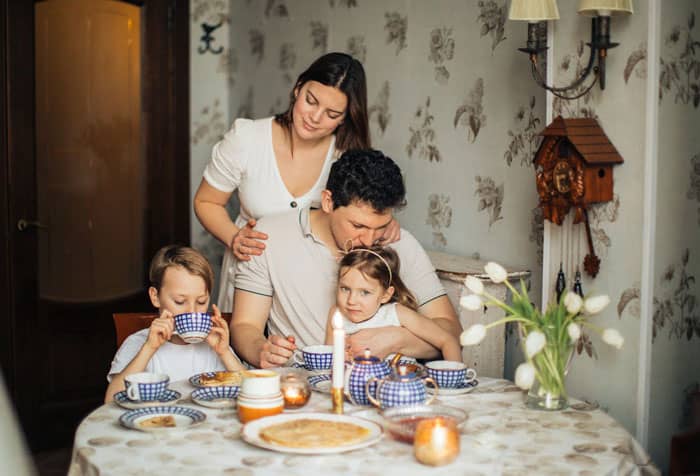
Image credits: Elina Fairytale / Pexels (not the actual photo)
But this woman has gotten sick and tired of being homebound, and she blames her husband for it
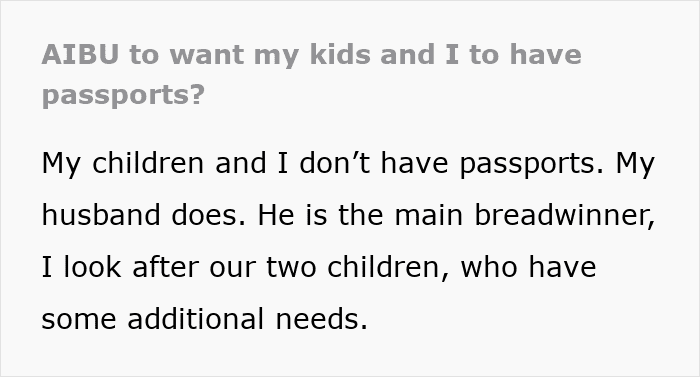
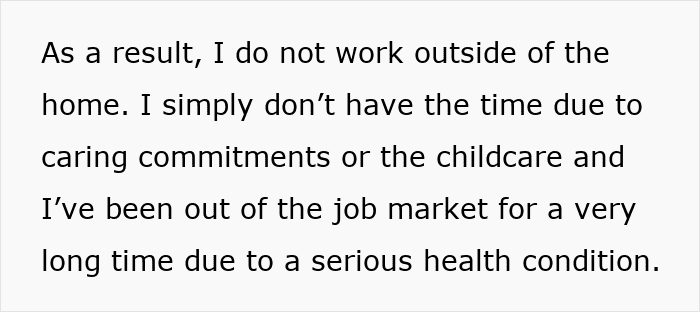
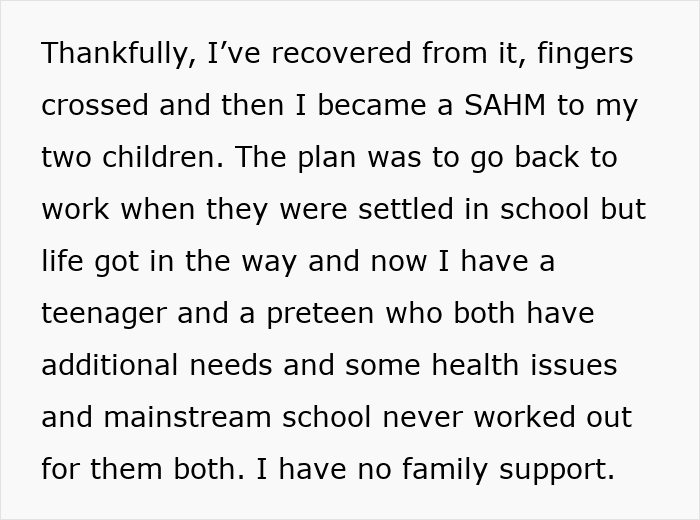

Image credits: Mikhail Nilov / Pexels (not the actual photo)
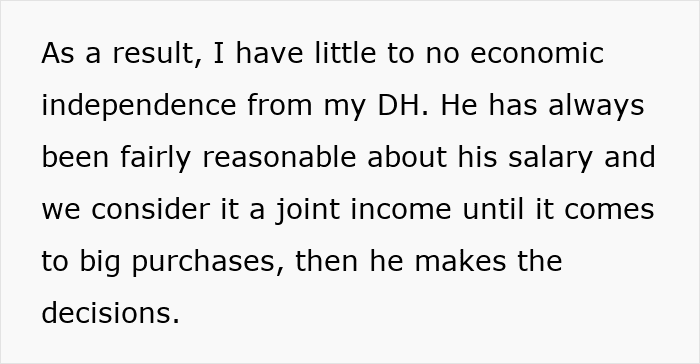



Image credits: RDNE Stock project / Pexels (not the actual photo)
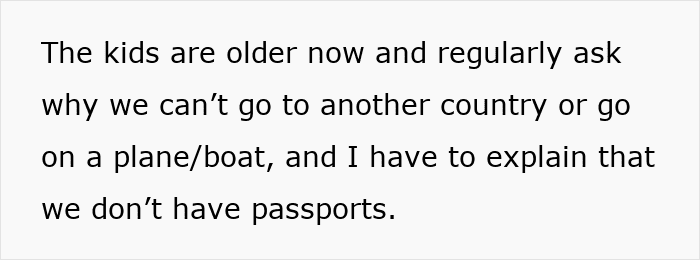

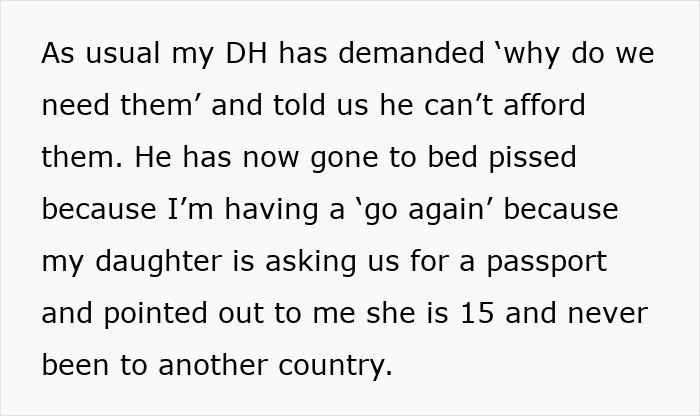
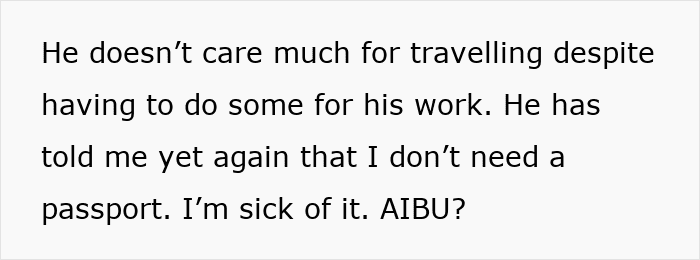
Image credits: Marzipanface

For better or worse, money plays a big role in many relationships
With more and more Americans feeling financially constrained, 23% of all couples are primarily staying in their current relationships due to financial dependency, according to a report by LendingTree.
“Marriage is a union of love, but it’s also an economic arrangement, and we don’t think about the money part until there are issues and problems,” said Stacy Francis, a certified financial planner and the president and CEO of Francis Financial in New York.
There can be varying degrees of financial entanglements. About 62% of couples who are married, in a civil partnership, or living together share at least one account, LendingTree discovered, and 41% completely combine funds.
The expert says there’s generally not a right or wrong way for couples to manage their assets, as long as they are on the same page.
But as a baseline, Francis recommends “having yours, mine, and ours,” so each person has their own money in addition to a joint account.
Numbers also support this approach: 58% of those who share at least one bank account claim they stayed together after a financial argument, compared to 47% of those who don’t have a shared account.

A controlling partner can harm us deeply
Some might even blame the author of the post for not “recognizing” her husband’s “true colors” earlier and marrying into such a controlling relationship.
However, Carol A. Lambert, MSW, who is a psychotherapist and domestic violence expert with three decades of clinical experience, says, “The initial period of falling in love is the beginning of a distorted reality one enters into when forming a relationship with an ‘unknown’ perpetrator.”
“This favorable, even exciting, stretch can last even a year or more. Slowly and subtly, coercive tactics will eventually be used by the perpetrator that can be easily overlooked, especially if you don’t know what to look for. Over time, one can get drawn in and overpowered by this type of intimate partner.”
As the relationship progresses, subtle coercive tactics give way to more obvious hurtful attacks such as critical remarks, unfulfilled promises, intimidating gestures, yelling, etc.
Ending things isn’t as easy as snapping your fingers, either. It takes approximately 7 attempts for a survivor to leave an abuser permanently, with false hope contributing to returning each time.
“False hope for the relationship always accompanies denial of the abuse that has taken place. When the abuse was acute, one [could] clearly feel how wrong, unfair, and outrageous the behavior was. But in the favorable shift, you can become ambivalent, rethink the episode, and might even be encouraged to own some part of your behavior that contributed to the abusive reaction,” Lambert adds.
“To unpack false hope, it’s critical to recognize and understand that your partner’s favorable behavior following their intense abuse is a manipulation to pull you back and reconcile. It’s critical to see this shift that instills hope as a manipulation.”
The psychotherapist said that being the recipient of abuse, especially coercion and psychological abuse, even without physical violence, causes PTSD. Whether or not thisMumsnet user is experiencing it, let’s hope she finds a way to escape the current limbo.
After reading the woman’s story, some people said she doesn’t deserve to go traveling
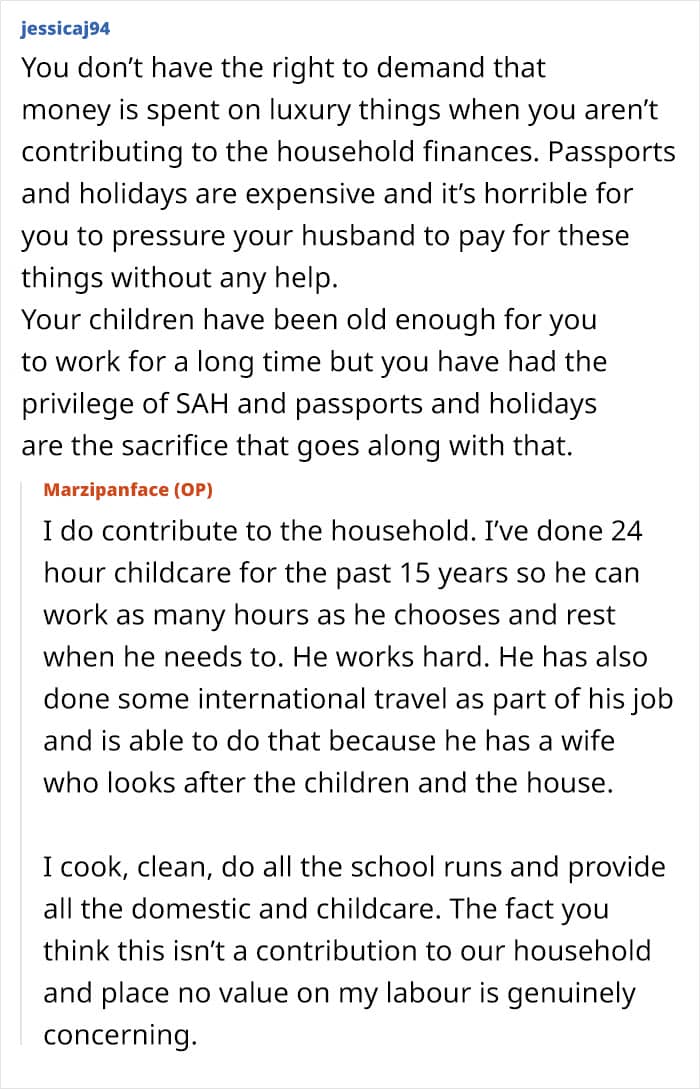
So, she provided more information on her predicament
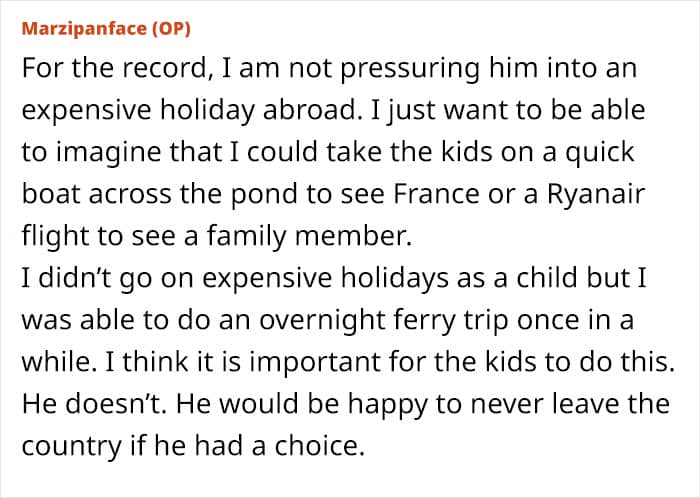
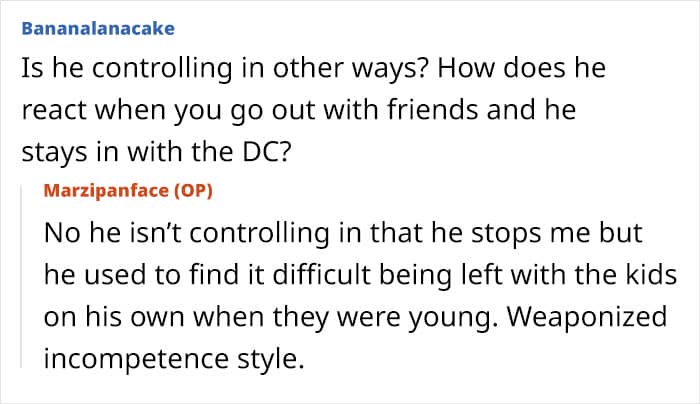
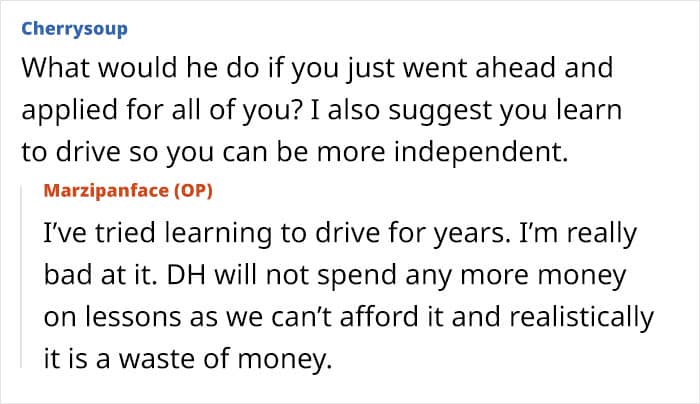
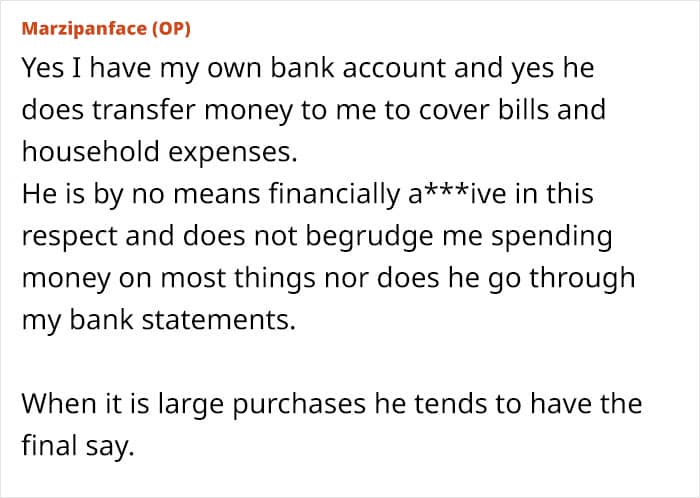

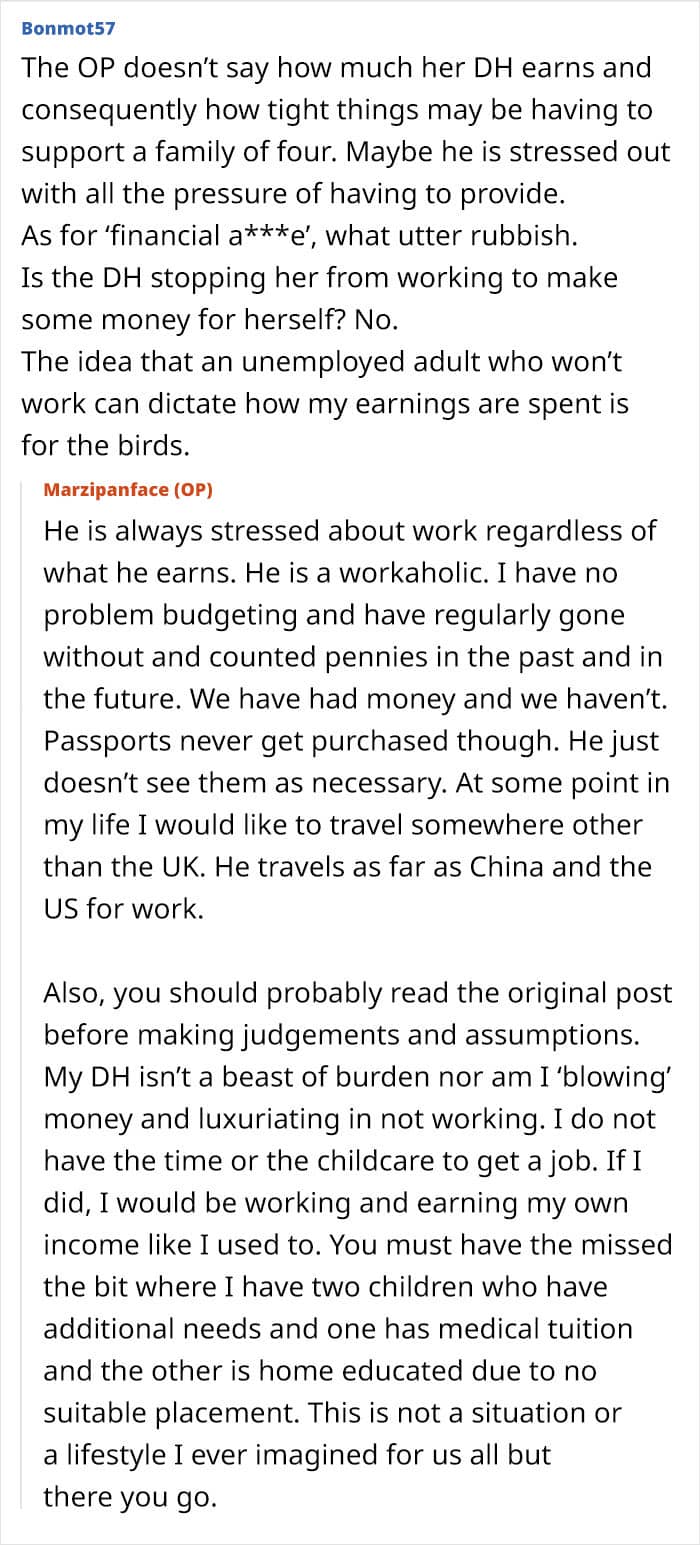
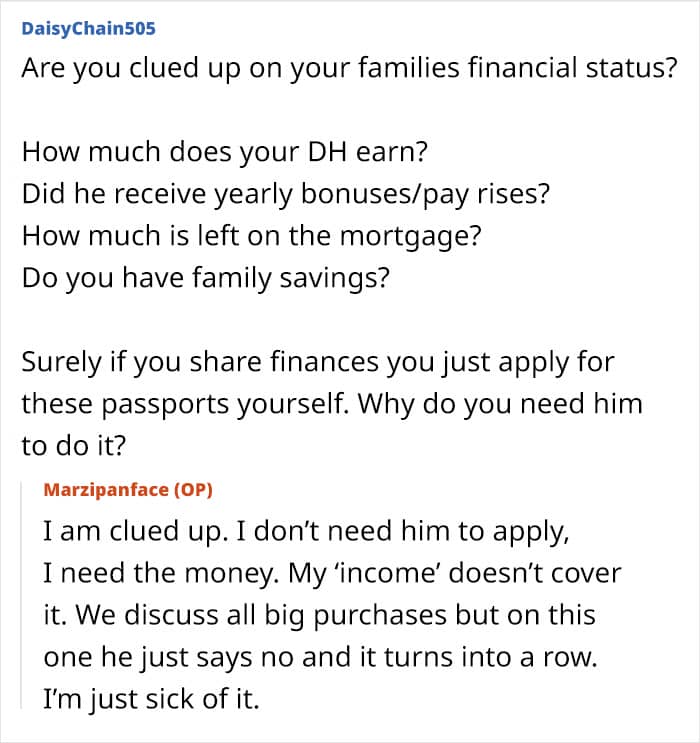
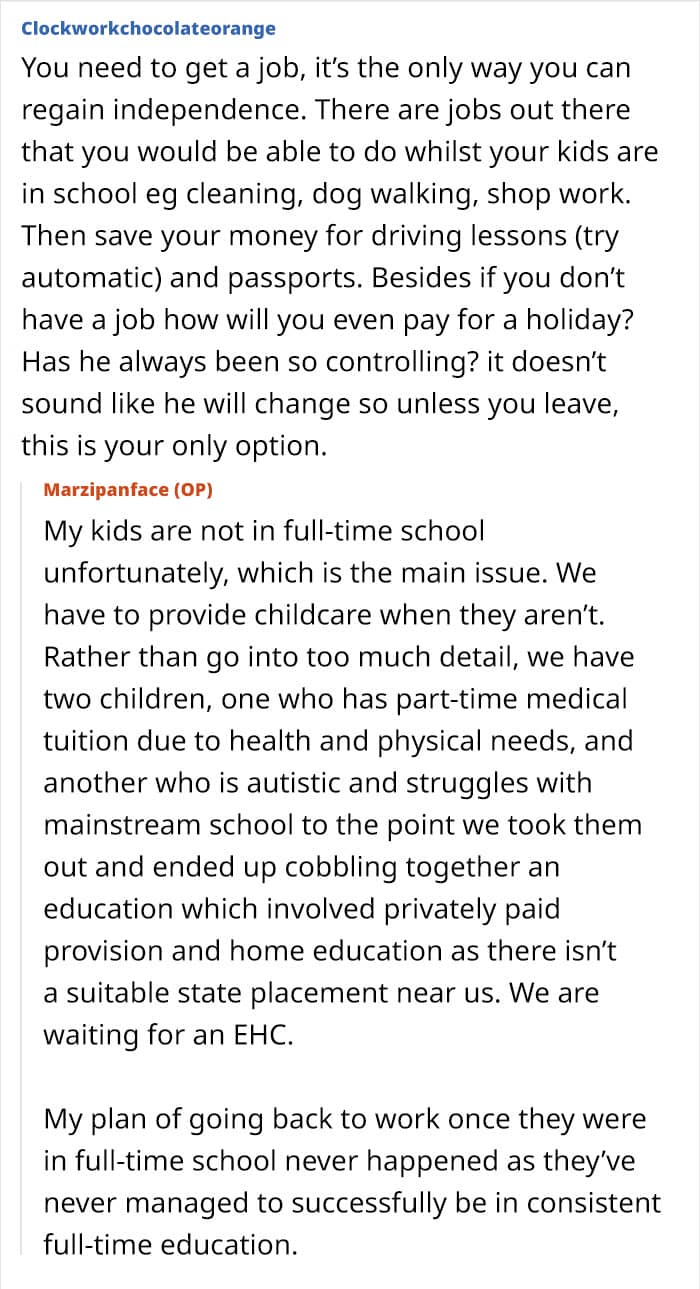
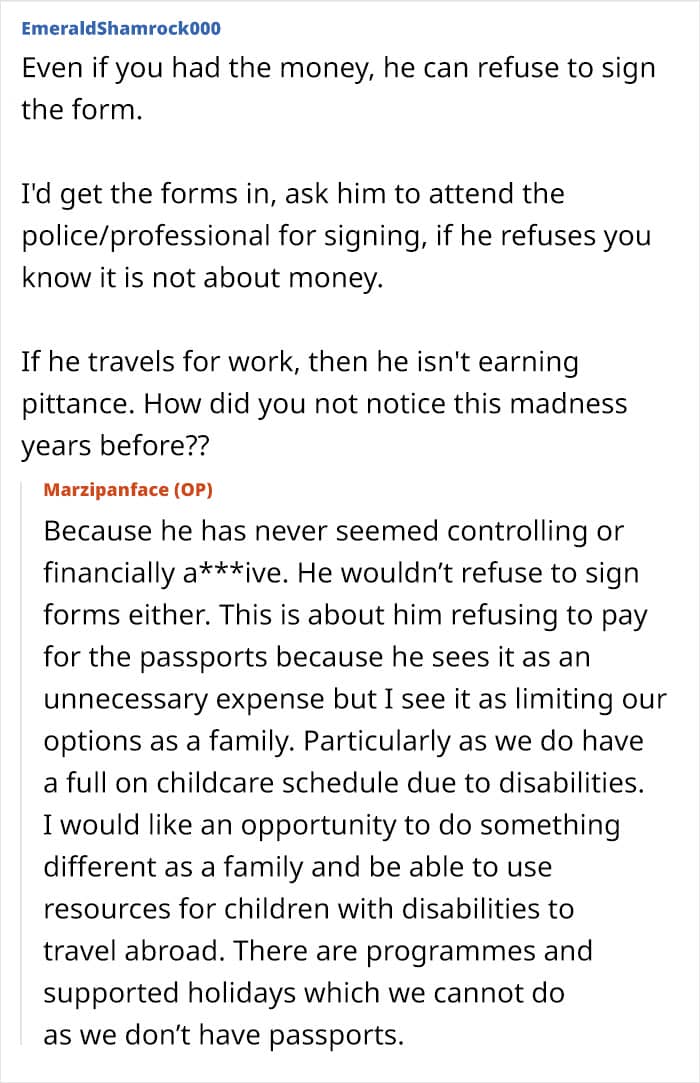
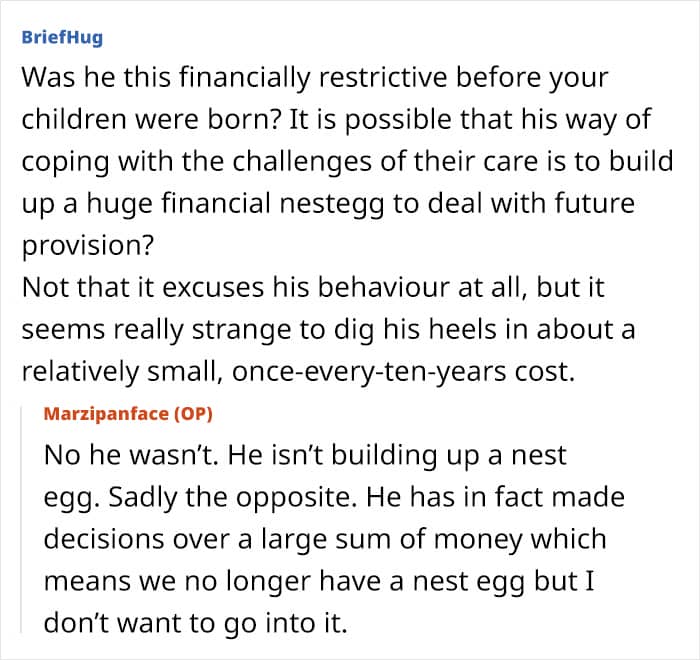
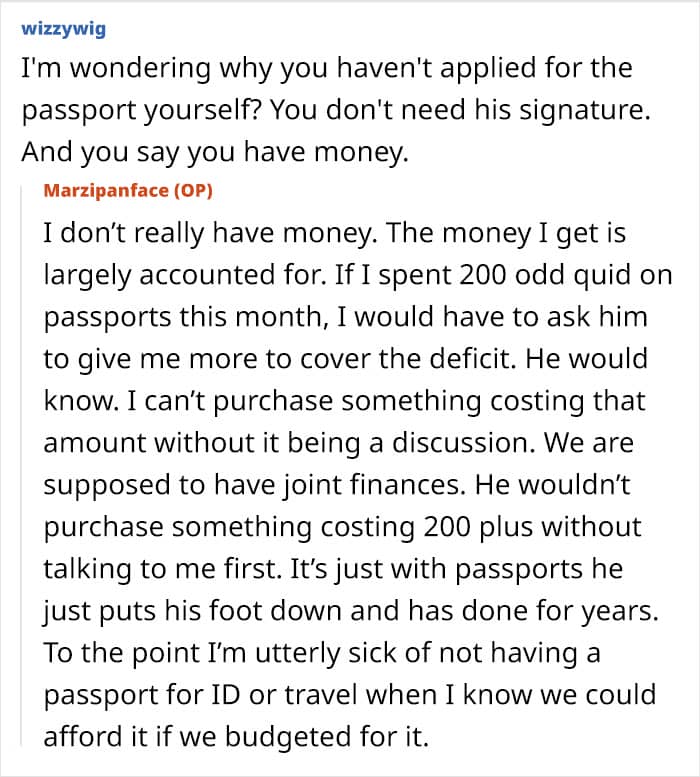

The family conflict has received a lot of different reactions
